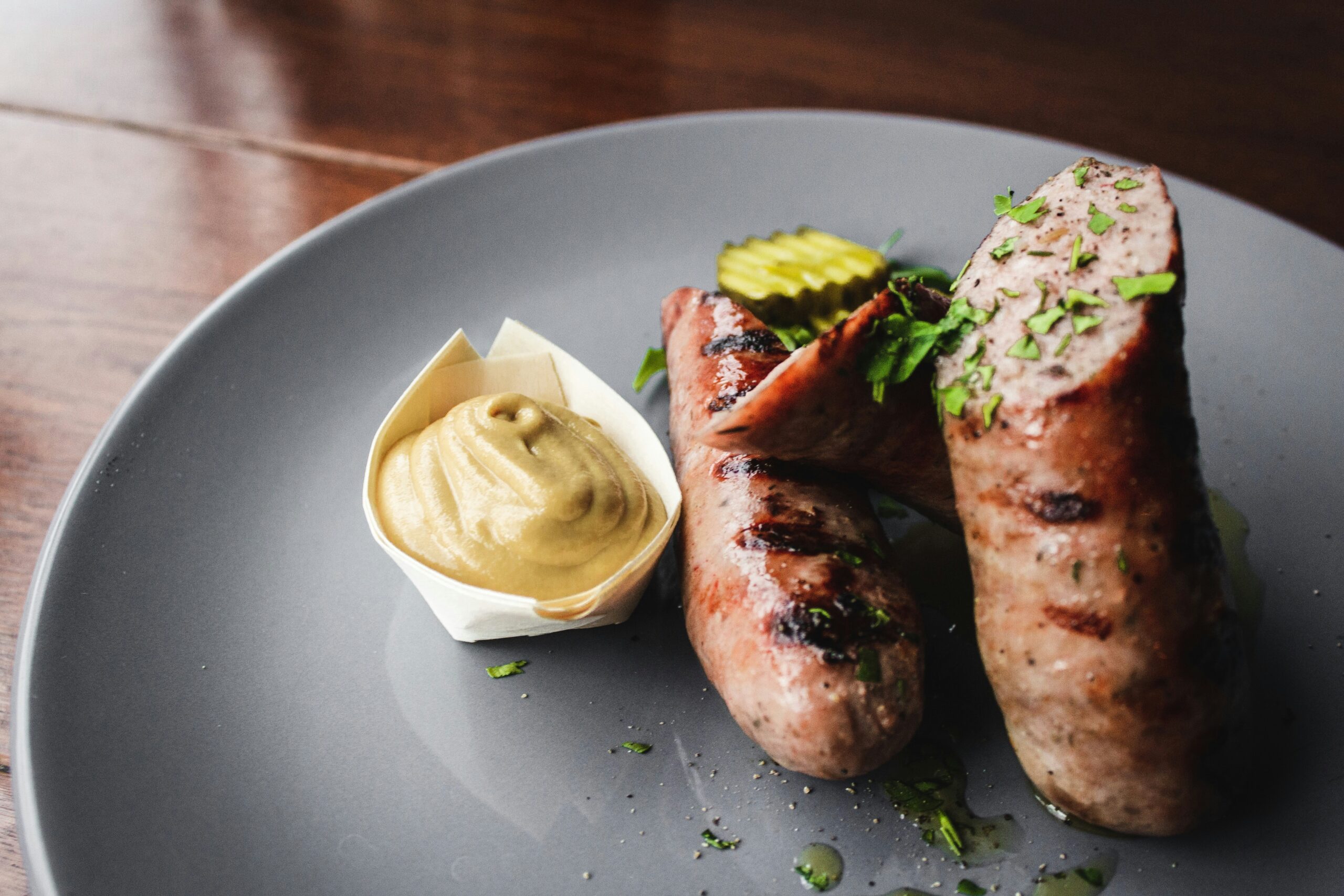If you’re following a keto diet and miss having a few drinks with friends, you might be wondering what types of alcohol are keto-friendly. Luckily, there are options that won’t hinder your progress. In this article, we’ll explore the world of keto-friendly alcohol and how you can enjoy a drink or two without sabotaging your low-carb lifestyle. So, if you’re hoping to unwind with a glass in hand, keep reading to discover the best choices to toast to your health while staying in ketosis!
Understanding the Keto Diet
Concept of the ketogenic diet
The ketogenic diet, also known as the keto diet, is a low-carb, high-fat diet that has gained significant popularity in recent years. The fundamental concept behind the keto diet is to switch the body’s primary source of energy from glucose (derived from carbohydrates) to ketones (produced by the liver from stored fat). This state of metabolic adaptation is called ketosis.
Purpose and benefits of the ketogenic diet
The keto diet was originally developed in the 1920s as a therapeutic approach to managing epilepsy, particularly in children. However, in addition to its seizure-reducing effects, the diet has shown promising results in aiding weight loss, improving insulin sensitivity, and boosting mental clarity. Many individuals also adopt the keto diet to enhance their athletic performance or address certain metabolic conditions.
What to eat and avoid when on a Keto diet
When following a keto diet, it is crucial to focus on consuming foods that are low in carbohydrates and high in healthy fats. Foods typically consumed on a keto diet include meat, fish, eggs, nuts and seeds, non-starchy vegetables, and healthy oils. Conversely, foods to avoid include grains, sugars, certain fruits, legumes, and processed foods high in carbohydrates.
Alcohol and the Keto Diet
Effect of alcohol on ketosis
Alcohol consumption can have both positive and negative effects on the state of ketosis. While alcohol itself does not contain carbohydrates, it can interfere with the body’s ability to burn fat for fuel. The liver prioritizes alcohol metabolism over the breakdown of fats, which can temporarily halt the production of ketones and potentially pause the ongoing fat-burning process.
Why traditional alcoholic drinks are not suitable for the ketogenic diet
Traditional alcoholic drinks, such as beer and sugary cocktails, are typically high in carbohydrates and therefore not compatible with the ketogenic diet. These drinks can easily push your daily carbohydrate intake beyond the recommended limits and hinder your progress in achieving or maintaining ketosis.
Overview of carbohydrates in alcohol
Carbohydrate content varies across different types of alcoholic beverages. For example, beer contains a significant amount of carbohydrates, while spirits like vodka and whiskey contain little to no carbohydrates. Wine falls somewhere in between, with varying carbohydrate levels depending on the type and sweetness.

Criteria for a Keto-Friendly Alcohol
Low-to-no carbohydrate content
To ensure an alcohol choice is suitable for the ketogenic diet, it is crucial to prioritize beverages with low-to-no carbohydrate content. This helps minimize the interruption of ketosis and allows you to enjoy a drink without exceeding your carbohydrate limits.
Moderate to low alcohol content
Another consideration is the alcohol content of the beverage. Higher alcohol content can potentially disrupt ketosis and increase the risk of dehydration. Opting for drinks with moderate to low alcohol content ensures a healthier and more keto-friendly choice.
Minimum sugar additives
Sugar additives in alcoholic drinks can significantly contribute to carbohydrate intake and hinder ketosis. Choosing beverages with minimal or no sugar additives is essential to maximize the compatibility of alcohol with the ketogenic diet.
Types of Keto-Friendly Alcohol
Hard liquor options
Hard liquors such as vodka, gin, rum, and tequila are excellent choices for those following a keto lifestyle. These spirits are typically carb-free or contain negligible amounts of carbohydrates, making them suitable for maintaining ketosis. However, it is essential to consume them in moderation and be mindful of mixers, as some mixers can be high in carbohydrates.
Wine options
While wine generally contains more carbohydrates than hard liquors, there are still keto-friendly options available. Dry wines, such as Sauvignon Blanc and Pinot Noir, have lower sugar content and can be enjoyed in moderation on a keto diet. It is important to note that sweet or dessert wines should be avoided due to their higher sugar content.
Beer options
Beer is one of the alcoholic beverages that tends to be high in carbohydrates, making it challenging to find keto-friendly options. However, some light beers and select low-carb or keto-friendly beers are available on the market. These beers are brewed with reduced carbohydrate content, allowing beer enthusiasts to indulge without completely derailing their ketogenic lifestyle.

Hard Liquor: A Closer Look
Counting carbs in hard liquors
Hard liquors are typically carb-free or contain very few carbs per serving. For example, a 1.5-ounce shot of vodka or whiskey contains zero carbohydrates. While these spirits may not directly affect ketosis, it is important to keep in mind that excessive alcohol consumption can slow down weight loss progress.
Most recommended keto-friendly hard liquors
Some of the most commonly recommended keto-friendly hard liquors include vodka, gin, whiskey, and tequila. These options are usually free of carbohydrates and can be enjoyed straight, on the rocks, or mixed with low-carbohydrate mixers such as soda water or diet soda.
Wine: A Closer Look
Carb content in different types of wine
The carbohydrate content of wine varies depending on the type and sweetness. Dry wines, such as Sauvignon Blanc and Pinot Noir, typically contain around 2-4 grams of carbohydrates per 5-ounce serving. On the other hand, sweeter wines like Riesling or Moscato can contain 8 grams or more of carbohydrates per serving.
Most recommended keto-friendly wines
For those who enjoy a glass of wine while following a keto diet, dry wines are the best choice. Opting for red wines like Cabernet Sauvignon or Merlot, or white wines like Chardonnay or Sauvignon Blanc, allows you to savor a glass without straying too far from your daily carbohydrate goals.

Beer: A Closer Look
Carb content in beers
Beer is notorious for its higher carbohydrate content compared to other alcoholic beverages. Traditional beers can contain as much as 10-20 grams of carbohydrates per serving, effectively exceeding the daily carbohydrate limits of a keto diet. However, there are light beers and low-carb beers available that are specifically brewed to cater to individuals following a ketogenic lifestyle.
Most recommended keto-friendly beers
If you’re craving a beer but want to stay in ketosis, there are a few keto-friendly beer options to consider. Some popular choices include light beers such as Michelob Ultra or Miller Lite, as well as low-carb craft beers like Lagunitas DayTime IPA or Dogfish Head Slightly Mighty. It’s important to note that even these keto-friendly options should be consumed in moderation to avoid stalling weight loss progress.
Making a Keto-Friendly Alcoholic Beverage
Tips for making your own keto cocktails
If you enjoy mixing cocktails, there are ways to create keto-friendly versions of your favorite drinks. Opt for low-carbohydrate mixers such as soda water, diet soda, or sugar-free beverages. Additionally, consider adding fresh lemon or lime juice for flavor instead of high-sugar mixers. Lastly, be mindful of the alcohol content in your creations, as higher alcohol concentration can affect ketosis and hydration levels.
Popular keto cocktail recipes
Several popular keto cocktail recipes exist, allowing you to indulge in a delicious drink while staying in line with your keto goals. Some examples include the classic vodka soda, made with unsweetened soda water and a squeeze of lime, or a refreshing gin and tonic using diet tonic water. Experimenting with sugar-free syrups and natural flavor extracts can also help create a variety of unique and keto-friendly cocktails.
Things to Consider When Consuming Alcohol on a Keto Diet
Amount of alcohol consumption
Maintaining moderation is key when incorporating alcohol into a keto diet. Excessive alcohol intake can lead to decreased inhibitions, impaired judgment, and an increased likelihood of making poor food choices that may derail your progress. It’s important to consume alcohol in moderation and be mindful of your overall calorie and carbohydrate intake.
Potential risks and side effects
While moderate alcohol consumption can be incorporated into a keto diet for most individuals, there are potential risks and side effects to be aware of. Alcohol can have a dehydrating effect on the body, which may contribute to electrolyte imbalances and increased chances of experiencing a hangover. Additionally, alcohol can lower inhibitions, leading to potentially harmful decisions or overconsumption.
Importance of staying hydrated
Given the potential for dehydration, it is crucial to prioritize hydration when consuming alcohol on a keto diet. Be sure to drink plenty of water before, during, and after alcohol consumption to help mitigate the effects of dehydration. This is especially important when consuming alcoholic beverages with higher alcohol content.
Conclusion
Summary of the keto-friendly alcohols
While alcohol consumption is not necessary on a keto diet, it is possible to enjoy certain alcoholic beverages while staying in line with your nutritional goals. Hard liquors like vodka and whiskey, as well as select wines and beers, can be enjoyed in moderation without significantly impacting ketosis.
Guidance for responsible consumption
When consuming alcohol on a keto diet, it is important to exercise responsible consumption practices. Moderation is key, and being mindful of both your alcohol intake and overall carbohydrate and calorie consumption is crucial for maintaining progress and reaping the potential benefits of the ketogenic diet.
Noting the importance of individual posterity
It’s essential to remember that everyone’s body reacts differently to alcohol and dietary choices. While certain alcoholic beverages may be considered keto-friendly based on their carbohydrate content, individual responses to alcohol can vary. It’s important to listen to your body, monitor your own reactions, and adjust your choices accordingly to ensure optimal well-being and success on your keto journey.

